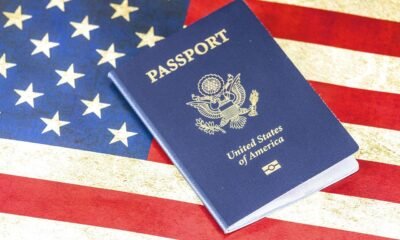Commentary
New Rule on Rear Passenger Seatbelt Warnings Lacks Enforcement Power

The National Highway Traffic Safety Administration (NHTSA) has enacted a new regulation mandating that all new passenger vehicles incorporate visual and audible seatbelt warning systems for rear-seat occupants, alongside enhanced warnings for those in the front seats. This initiative targets low seatbelt compliance rates among rear-seat passengers, traditionally overshadowed by front-seat usage. The implementation dates are set for September 1, 2026, for front seat warnings, and September 1, 2027, for rear seat warnings.
Marc Lamber, an Arizona personal injury attorney with over 30 years of experience, underscores the vital role of seatbelt use. He highlights that buckling up significantly decreases the likelihood of severe injuries or fatalities in vehicle accidents. Unfortunately, even with widespread education, many still overlook this essential safety practice, leading to unnecessary tragedies.
Statistics further emphasize the urgency of this issue:
- Seatbelts lower the risk of death by 45% for front-seat passengers in cars and by 60% for occupants in SUVs, vans, and trucks.
- In 2022, approximately 42,795 individuals died in motor vehicle collisions in the U.S., with nearly half of those fatalities involving unbelted passengers.
- Unbelted rear-seat passengers face three times greater risk of death in a crash compared to those who wear seatbelts.
Arizona has recently made strides in seatbelt legislation by requiring all front-seat occupants and passengers aged 8 to 15 to wear seatbelts. However, there remains no statewide mandate for adult rear-seat passengers aged 16 and older. While it’s strongly advised for their safety, adults in the back seat are not legally obligated to buckle up.
The NHTSA’s regulations, combined with Arizona’s current laws, represent progress in seatbelt safety. Nevertheless, the effectiveness is limited. Under current state regulations, seatbelt violations are considered a secondary offense, meaning tickets can only be issued for these infractions if another primary violation is present. Advocates argue that, similar to the laws against cell phone use while driving, seatbelt use should be enforced as a primary offense.
Though recent legislative measures in Arizona are noteworthy, they require enhancement. Instituting a law mandating all passengers, regardless of age or seating arrangement, to be buckled would significantly bolster safety. While some may criticize such regulations as limiting personal freedom, balanced consideration between individual rights and public safety is crucial. The simple act of buckling up is profoundly less burdensome than the potential consequences of neglecting it.
The way forward is evident. Continued advocacy for thorough seatbelt usage, support for enforceable legislative measures, and the adoption of safety-enhancing technology are essential. Together, these steps can lead to a future where avoidable injuries and fatalities on our highways are increasingly rare.
Marc Lamber is a Martindale Hubbell AV Preeminent-rated trial attorney and public safety advocate, serving as director at the Am Law 200 firm Fennemore and chairing the Personal Injury Practice Group.


















